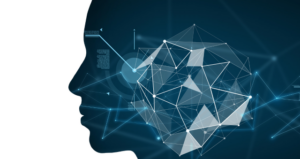
Earning Our AI Literacy License
When my son started the fourth grade, his teacher provided a thick bound packet of cursive writing worksheets. She said that completing the packet was

When my son started the fourth grade, his teacher provided a thick bound packet of cursive writing worksheets. She said that completing the packet was

Despite debate and disagreement about how to define and measure attention spans, numerous studies have put student attention spans in approximately the 10-minute range (Bradbury,

On our way to developing a curriculum for implementable real-world projects in professional classrooms, an interesting thing happened: Generative AI became ubiquitous. This provided a

Many of you reading this article are online teachers and I would like to start by asking two questions: Are you a good online teacher?

One of the persistent challenges in second language acquisition (SLA), especially within the communicative approach, is how to incorporate writing in a way that feels meaningful and beneficial to students.

When preparing for a new term, there is much to consider. Textbooks and course materials to review, syllabi to update, lessons to plan, lectures to prepare.

Back in 2018, I decided to take the plunge and move to an OER textbook. Now, for those who aren’t familiar, OER, or Open Educational Resources,

The professional world in educator certification and Educator Preparation Programs (EPP) has changed since the omnipresent technological advances that have invaded almost every aspect of life.

The rapid evolution of artificial intelligence (AI) has ushered in a new era for community college education, presenting both exciting possibilities and complex challenges. While AI-powered tools offer potential to enhance teaching and learning, concerns about AI replacing human instructors have sparked a complex debate.

The upcoming semester is looming like a deadline in the distance, slowly but surely creeping closer. But fear not! This year, you have a secret weapon in your back-to-school arsenal: AI. Imagine having a digital assistant that never sleeps, helping you draft syllabi, create lesson plans, and even answer those tricky student emails.
Get exclusive access to programs, reports, podcast episodes, articles, and more!